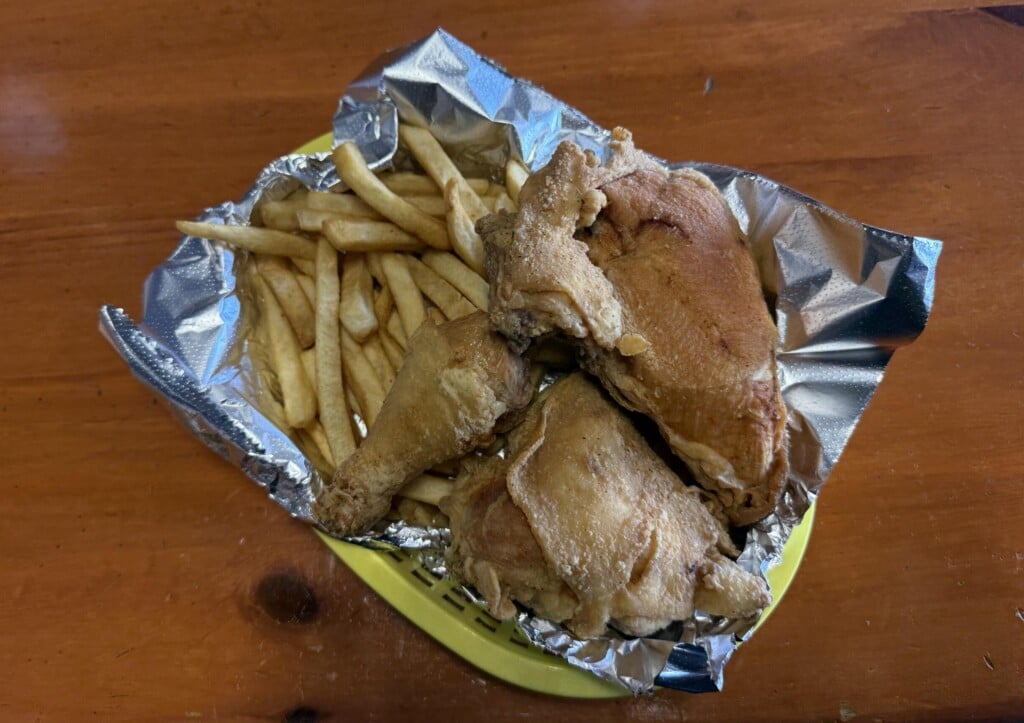Kosher Deal

Small-time bands have plenty of reasons to hit the road. Some groups are inspired by ambition, while others are simply thrillseekers. For a few, a midlife crisis spurs the search for out-of-state shows. Kosher‘s odyssey came about out of necessity.
“We’ve been banned from just about every club in town,” says the band’s bassist/vocalist, who goes only by Remy. The group’s following deserves the blame for some of the brouhahas that got Kosher blacklisted from Warrensburg’s night spots. “Weird things happen whenever you get the people who hang around us drunk,” he says. But in one incident, Remy himself kicked a “frat dude” in the back after the offender made an unwelcome appearance on stage, knocking over a few mic stands in the process. Soon after, the venue, which usually hires dance acts such as Dr. Zhivegas, stopped booking punk shows. “I guess it caused too much of a stink,” Remy says.
But Kosher’s forced exile paid major dividends. The group picked up some influential fans while playing gigs with nationally known indie-label heavyweights Dillinger Four and Murder City Devils and eventually signed a three-record deal with BYO, the two-decades-old California-based label that’s released albums by punk legends Seven Seconds and Youth Brigade. Remy, who says he doesn’t listen to many current groups, was impressed by the label’s old-school catalog. But he says the fact that BYO accepted the group’s self-released album Self Control was the most important factor in deciding to sign.
“They said the music was good enough to put out as it was,” Remy says. Like Kosher’s previous releases, including four ten-or-so-song tapes and one CD called The CD (“I hope nobody gets it,” Remy warns), Self Control was recorded at Warrensburg’s Station Studios. It will be released nationally on November 27 with altered artwork but the original tracks, including four songs carried over from previous Kosher releases.
BYO earned its reputation by working with gruff, uncompromising artists — its first release, a compilation, was titled Someone Got Their Head Kicked In. So it’s not surprising that the label felt no need to smooth out Kosher’s rough edges or emphasize its somewhat obscured melodies. Lyrically, the band addresses standard punk topics such as revolution, hypocrisy, religion and boredom. Some of its lines read like thesis statements for punk zine editorials (The media destroys the masses’ minds), while others borrow heavily from early Madonna (I may take a holiday/I need some time to get away). Many of its songs employ slogans (Don’t give in; break the chains; it’s time to take a stand) that have lost much of their power after being driven into the ground by well-intentioned like-minded acts. However, Kosher’s lone relationship tune, “Top of the World,” deals relatively eloquently with a breakup. Forlorn but not whiny, the track suggests Kosher could follow in the footsteps of Screeching Weasel and evolve from by-the-numbers rebellion odes to clever emotional studies.
Kosher, however, doesn’t seem to care which type of song it produces. “It’s just whatever comes to mind,” Remy admits. He notes that the band doesn’t play “Revolution” anymore, but not because of a shift in political ideology. “[Drummer] Rob is a puss,” he alleges, “and he can’t play fast anymore.”
One of Kosher’s tunes is titled “Death to Drama,” an ironic sentiment from a group that seems to provoke histrionics wherever it plays. And the band isn’t necessarily trying to cool tempers. “Brand New Enemy,” for example, opens with the fighting words You preach about the scene/KC pride until the day I die?/I don’t know what you mean. “It’s about a fat skinhead who started shit at one of our shows,” Remy explains. “He tried to fight us onstage, but we didn’t care. We just showed our dicks to him.”
Kosher wasn’t banned from playing in Kansas City as a result of this incident. But even if it’s not prohibited from gigging at area clubs, Kosher hasn’t made much of a breakthrough. “I don’t think we’ve ever been well-received there, and I’ve never really played that well in Kansas City,” Remy says. Its biggest opportunity to convert the locals takes place Friday night at Davey’s Uptown, which will be the group’s first appearance at a Kansas City bar on a weekend night.
Remy has decided that if no one else in Warrensburg is brave enough to book Kosher, he’ll have to do it himself. He has been booking the bands at the punk club Bodie’s, where Kosher routinely plays to crowds of roughly a hundred fans, he reports. He has also been bringing in national attractions, such as California’s Toys That Kill, which plays the venue on November 14.
But so far, the fact that the road has been more welcoming to Kosher than its home turf makes the group’s longest tour particularly inviting. Starting with a week’s worth of shows in the Midwest this winter, the itinerary goes on to include three weeks of West Coast dates, which will present a whole new world. “We’ve never been west of Kansas,” Remy says.
Kosher completed its first out-of-state jaunt five years ago, after its then-teenaged members decided they couldn’t wait around for local support. “I’m glad that we started focusing more out of the area,” says Remy, now 22. “Where we’re from, nobody really cares what we’re doing.” Up until recently, the labels to which the band consistently mailed its recordings weren’t interested, either. “That’s basically all I did during high school: send out demos,” he recalls. “And nobody bit.”
It was a frustrating process, to be sure. But, Remy concludes, “We’re just too dumb to quit.”




